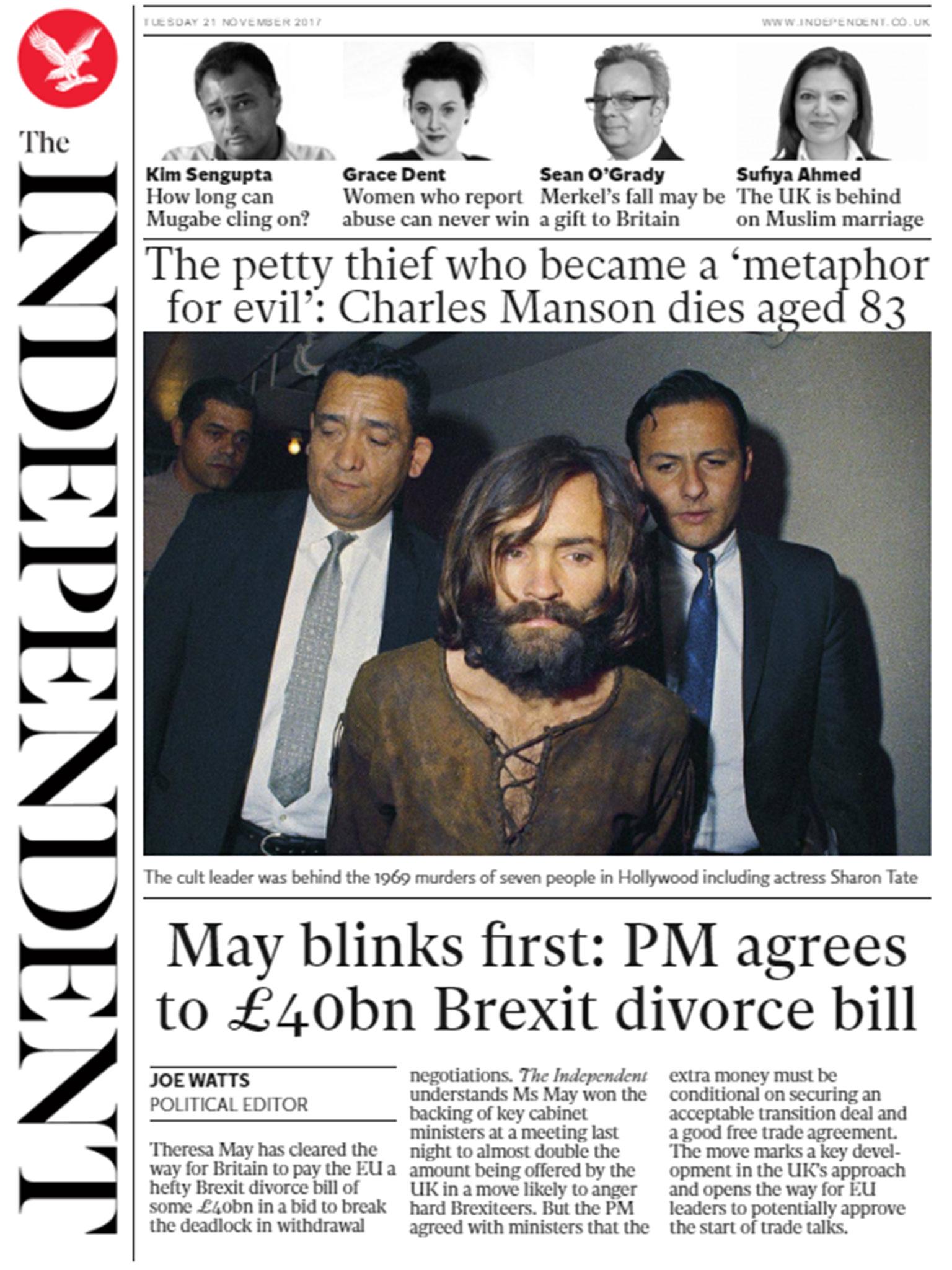British and European Union negotiators have reached a deal in principle on the Brexit “divorce bill” that could see the UK paying some £45bn.
Sources in Brussels suggested to The Independent that talks have seen the two sides’ stances begin to align over the “methodology” for calculating the settlement, with the outcome increasingly acceptable to both sides.
If given the backing of Jean-Claude Juncker and the Prime Minister at a meeting on Monday the deal would help clear the way for EU leaders to agree to move Brexit talks on to trade at a crunch December council summit.
The financial settlement had been eclipsed by the Irish border issue and citizens’ rights in recent days – a sign it is no longer the main sticking point in discussions.
Sources in both London and Brussels said that no final agreement had yet been set in stone, but intense negotiations ahead of the Monday’s meeting appear to have borne fruit.
No figure has been explicitly agreed upon, but sources in Brussels highlighted that the EU had always been pushing for clarity on how the bill would be drawn up as opposed to an outright number.
Other reports also filtered out of Brussels on Tuesday night pointing to negotiators having edged towards an agreement totalling between £45bn and £55bn.
Later, further reports emerged that cabinet ministers in London had agreed negotiating positions on keeping the Irish border open and an ongoing role for the European Court of Justice in guaranteeing EU citizens’ rights.
It was suggested in reports from Brussels that the figure would be deliberately left open to interpretation to give the Prime Minister political cover in the UK,
Theresa May said in her Florence speech in September that no EU country “need to pay more or receive less over the remainder of the current budget plan as a result of our decision to leave” and that “the UK will honour commitments we have made during the period of our membership”.
Her commitments there were read in Brussels to equate to some £20bn. But after it failed to break the logjam in talks, Ms May held a crunch meeting with her key cabinet ministers last week and won backing to up the offer.
Though no exact figure was agreed commitments the cabinet agreed to were expected to see the Government likely to pay some £40bn – near the figure said to have now been provisionally agreed by negotiators.

A spokesperson for the European Commission’s negotiating team would not comment, while British officials at David Davis Department for Exiting the EU said they didn’t “recognise” the figure.
A Downing Street source told The Independent: “Negotiations are ongoing ahead of the EU Council in December.”
When Ms May met cabinet ministers last week it was made clear that any increased offer for money would have to be accompanied by a clear plan for moving onto talks around the transition and trade stages of Brexit talks.
Tory backbenchers last night also made clear that they expected clear movement form the European Union if any agreement on money had been reached.
Conservative MP Bernard Jenkin told The Independent: “It better be worth it.
“It won’t be unless they now roll out the red carpet for a Rolls Royce free trade deal.”
But there are still key issues to be ironed out on the withdrawal part of the plan before Monday’s meeting – on ensuring EU citizens’ rights the role of the European Court of Justice and the export of benefits remain outstanding.
The question of what the Irish border will look like after Brexit has so-far proved intractable in a very public way, with Irish Government increasing pressure on Downing Street to commit to no hard border.
European Commission chief negotiator Michel Barnier said while on a visit to Estonia on Monday that that the “moment of truth” was approaching for Brexit talks and that an agreement on sufficient progress could be reach in “the next few days”.

Join our commenting forum
Join thought-provoking conversations, follow other Independent readers and see their replies
Comments